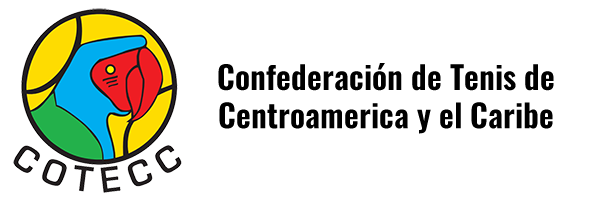By John Goede
On Thursday July 16th, I organized a Live Instagram through cotecctennis with the topic of Adult Tennis.
Presenting were the National Associations of the Bahamas (Everette Munroe), Trinidad and Tobago (Secretary General Jermille Danclar), Suriname (President Diego v.d.Zwart) and Bermuda (President Mike Wolfe).
Based on the reactions and questions during and after the session, it is clear that there is need for more attention on adult tennis, including programmes and competition formats.
The speakers, who all are part of the executive of the respective named nations, unanimously named Adult tennis as an important key to the resiliency of the sport in each country. Adult Tennis keeps the game alive and a few general notes are presented here before we follow the individual nations.
- Adults have daily and weekly tennis appointments and are still competitive;
- Adults often serve as a role model for the game and as a sign for a healthy life style;
- Adults preserve the joy of the game of doubles;
- Adults in tennis will be the pool with volunteers to assist in national development.
The ITF have their flagship Team competitions which are the Davis Cup and the Fed Cup. These competitions are extremely popular in the world and provide athletes the opportunity to stay highly competitive and represent their nation as a team on the international scene. The format of singles and doubles has been copied to the U12 Team Competition, the World Junior Team Competition and the Jr Davis Cup and Jr Fed Cup.
As competition drives the sport, Bermuda’s President Mike Wolfe and Trinidad’s Secretary General, Jermille Danclar presented their respective adult programmes during the session, where club tennis and team tennis are integral parts of the competition.
Bermuda
Bermuda has been on official lockdown for four weeks from early April. Before the closing of the sport activities, the government of Bermuda did provide protocols for athletes and recreation. Eventually Bermuda called for a complete lockdown.
After the four weeks, performance athletes were gradually allowed to continue training outside of the home area , still with the strict protocols provided. Tennis opened in the second week of May.
Cricket is one of the leading sports and the CUP Match, where East plays West in an established national event where the national sporting public, media and athletes live towards. The Bermuda government had to cancel this popular event because of the COVID-19 pandemic.
The Bermuda Lawn Tennis Association(BLTA) reacted!
From the advise of the ITF and COTECC, where the attention on the safety and quality of the national event organization was promoted, Bermuda created a calendar of activities instantly and build strong competitions for Juniors (all categories) and Adult athletes. One such a competition has been within the Team Concept. The name of the event was the 2020 Tennis Cup Match Classic and was played in Davis Cup format starting July 25th. The BLTA chose four players and a reserve to represent St. George’s (East) and four players and a reserve to represent Somerset (West). The youngest player was 15 yrs and the oldest 33.
Two non-playing captains lead the teams. David Thomas for East Bermuda and Jenson Bascome for West Bermuda. Both non-playing captains are part of the Bermuda Coaches Association, former Davis Cup players and passed the ITF CBI certification. Captain Bascome is the first Bermudian tennis player to receive the Davis Cup Commitment Award. He met the criteria for the award after making his 50th Davis Cup appearance.
The format of the 2020 Tennis Cup Match Classic:
- Two days of competition;
- Best of three Tie Break sets
- Captain on court
- 4 Singles and 2 Doubles
- Two days of competition with a sudden death singles in case of a tie.
The spectators (distanced) loved it while they had their whistles, air horns etc making a lot of noise. The event proved to be very successful and will take a strong position on the 2021 BLTA calendar.
What can we all learn from this:
- Build quality events on a national level and include adults;
- Doubles can be part of all recreational and performance training and competitions;
- Use your former players as role models for juniors and inactive adults and senior players;
- Maximize the opportunity in the country to build a strong base for tennis development.
